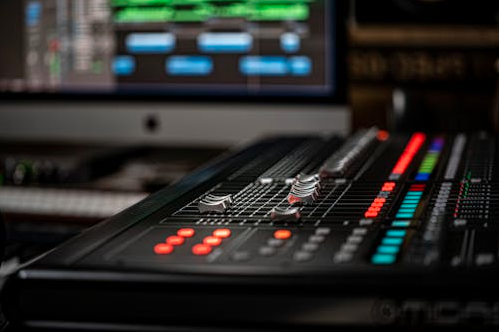Managing a recording studio means handling far more than microphones and mixing consoles. Sessions must be booked efficiently, equipment needs to be assigned properly, engineers require clear schedules, and clients expect smooth communication from first inquiry to final invoice. When these tasks are managed manually, mistakes are inevitable — double bookings, misplaced payments, forgotten follow-ups. That’s why more studios are turning to digital tools designed specifically for operational control. Choosing the best management software for recording studios is now one of the most important business decisions a studio owner can make.
Spacebring — Flexible and Client-Friendly
One of the strongest modern contenders is Spacebring, which offers an intuitive workflow for both studio managers and clients. Bookings can be handled online without back-and-forth messaging, and rooms or equipment can be assigned automatically depending on studio rules. Billing is built into the booking process, eliminating the tedious step of chasing payments manually. What sets Spacebring apart is its balance between automation and user experience. It not only manages operations behind the scenes but also gives artists and producers a smooth, professional booking journey. For many, it sets the benchmark as the best management software for recording studios thanks to its versatility and modern interface.
Studio Manager — Ideal for Large-Scale Operations
Studios that operate across multiple rooms or employ several engineers at once often gravitate toward Studio Manager. It offers deep structural control over scheduling, resource planning, cost tracking, and staff assignments. While it may be more complex than lightweight platforms, it excels in environments where managerial precision is essential. Studios with long-term commercial projects and strict documentation requirements often find it aligns well with their workflow.
Sonido — Streamlined Scheduling and Project Tracking
Sonido is designed for studios that want an all-in-one tool without excessive setup. Bookings, communication, file notes, and invoice tracking all exist in a single dashboard. Its greatest strength is centralization. Managers can see upcoming sessions, pending payments, and client activity without checking multiple apps. It’s a clean middle ground between minimal scheduling tools and more complex management systems.
AudioDope — Built for Operational Transparency
AudioDope focuses on eliminating disconnects between session bookings and financial tracking. Every session automatically becomes part of a financial record, ensuring engineers, rooms, and add-ons are billed properly. It’s particularly useful for studios that want to maintain consistency between creative work and revenue reporting without manual reconciliation.
Skedda — Best for Simple Room-Based Scheduling
Some studios don’t need deep financial or project tools. For those primarily focused on booking time slots, Skedda offers a straightforward reservation system with availability visibility. It makes scheduling conflict-free, but leaves billing and session logging to other tools. For smaller or part-time studios, that simplicity can be a benefit rather than a limitation.
How to Choose the Right Software
If your priority is delivering a premium client experience while maintaining operational efficiency, Spacebring stands out as a reliable modern option. Studios with complex staff structures or production pipelines may benefit more from Studio Manager. Those who prefer a clean, integrated system without heavy setup often lean toward Sonido or AudioDope. The ideal approach is to simulate a full session lifecycle — booking, resource allocation, invoicing, and communication — inside the software before fully committing.
FAQs
- What is the best management software for recording studios?
Spacebring, Studio Manager, Sonido, and AudioDope are leading choices, each suited to different operational styles. - Can these platforms manage both room and equipment reservations?
Yes, most allow assigning microphones, gear, or engineers alongside room bookings. - Do they automate invoicing and payments?
Most major platforms include billing tools, ensuring payments are tied directly to session bookings. - Is basic scheduling software enough for a small studio?
Simple setups may work well with scheduling-first platforms, but growing studios benefit from integrated billing and tracking. - Will the software scale as my studio expands?
The best systems are designed to grow with additional rooms, staff, or external collaborators.
Conclusion
A great studio thrives on creativity — but success depends on structure. Selecting the best management software for recording studios is less about features and more about how well a system fits your rhythm. Whether you value simplicity, automation, or deep operational control, the right platform will free you from administrative strain and let you focus on what truly matters: recording exceptional sound. If you’re ready to upgrade your workflow, platforms like Spacebring provide a strong foundation for the studios of today and tomorrow.














